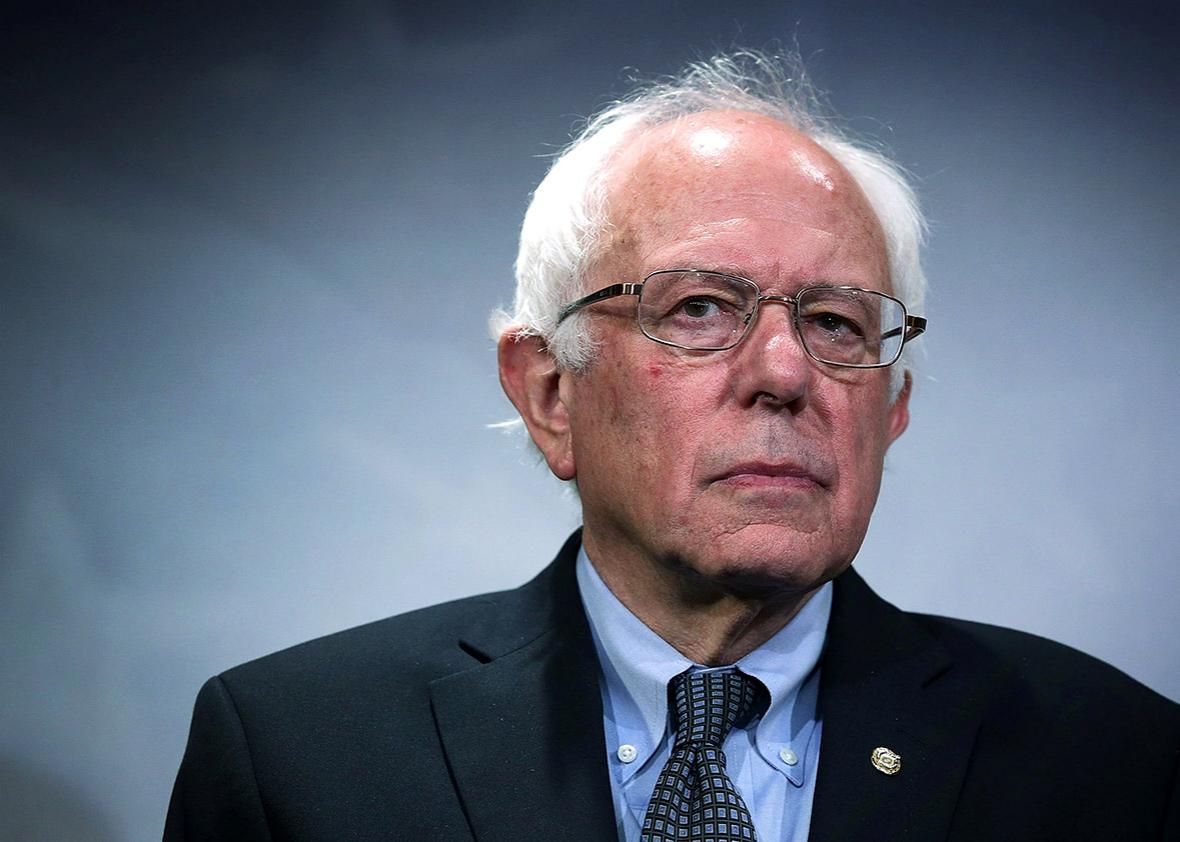Tens of thousands of people have seen Sen. Bernie Sanders speak in person. Hundreds of thousands have seen him from screens of some sort. But Tuesday night, at the Democratic presidential debate in Las Vegas, will be the first time America—or at least a substantial fraction of Americans—will witness the Vermont senator and “democratic socalist” in action. And for Sanders, it’s a test of what he wants to do with his candidacy.
We know what Hillary Clinton wants to do. She wants to be president. To that end—as the front-runner for the nomination—she’ll take a cautious (but confident) approach to the debate. Yes, she’s vulnerable to old criticisms: that she’s opportunistic and unprincipled (expect questions and jabs on the Trans-Pacific Partnership, for instance), that she’s too hawkish for a war-weary Democratic base, and that she has too much “baggage” as a long-player in national politics. But Clinton is also experienced enough to address those arguments—she did in the 2008 debates—without getting bogged down in needless conflict.
And to that point, there’s a good chance she avoids her 2007 and 2008 strategy of directly going after her opponents. Then, it made sense—Sen. Barack Obama was obviously a legitimate threat. Now, however, she stands against three marginal candidates—Martin O’Malley, Jim Webb, and Lincoln Chafee—and one insurgent, Sanders, who remains significantly behind in national polling. For Clinton, there’s no need to be aggressive and potentially alienate Sanders’ supporters. And there’s the fact that, if she did, she risks losing control of the media narrative. A Clinton who attacks Sanders is a Clinton who risks a new label for her campaign— “desperate”—even if it doesn’t fit.
Sanders doesn’t have this problem. We expect him as a challenger to go hard against Clinton. But this doesn’t fit his stated aims or approach. “I’ve never run a negative political ad in my life,” said Sanders in an interview with CNN earlier this year. “I believe in serious debates on serious issues. I’ve known Hillary Clinton for 25 years … I like Hillary Clinton … I respect Hillary Clinton.”
At the same time, if Sanders is serious about winning the nomination, he has to do more than talk about the issues; he must show that Clinton isn’t liberal enough or trustworthy enough to lead the Democratic Party beyond the Obama era. And that requires a harder edge. Sanders can go that route—Mother Jones describes a fierce and occasionally ill-tempered debater who can put his opponents on the defensive—but it comes at the risk of hurting his appeal as a basically friendly warrior whose anger is for oligarchs and corporations, not putative allies. The Sanders who flared at protesters at Netroots Nation this summer—“Shall I continue or leave? It’s OK with me.”—is one who could alienate Democrats who like him but don’t dislike Clinton.
Which brings us back to the aforementioned test. It’s hard to escape negative campaigns. Not because politicians are bad or unprincipled, but because campaigns are about contrast, and attacking a failure is often better than highlighting an advantage. If you want to win the election, you inevitably go negative. But if your priority is ideas—if you want to pressure a front-runner into using your message—then you might stay away from attacks and keep things cordial.
If Sanders is running to raise awareness—and to introduce his politics to the broad public—then we might get something more interesting than spats and conflict; we might get a bona fide debate over policy, where the two most popular candidates spar over their liberal visions for the United States.
The wild card in Tuesday night’s debate isn’t Sanders or Clinton—it’s everyone else. Neither O’Malley nor Webb nor Chafee have anything to lose by going on the offensive, and they have a lot to gain from winning attention. Sanders and Clinton might be able to stay away from each other, but don’t be surprised if one—or both—tries to swat one of the gadflies in the race.
